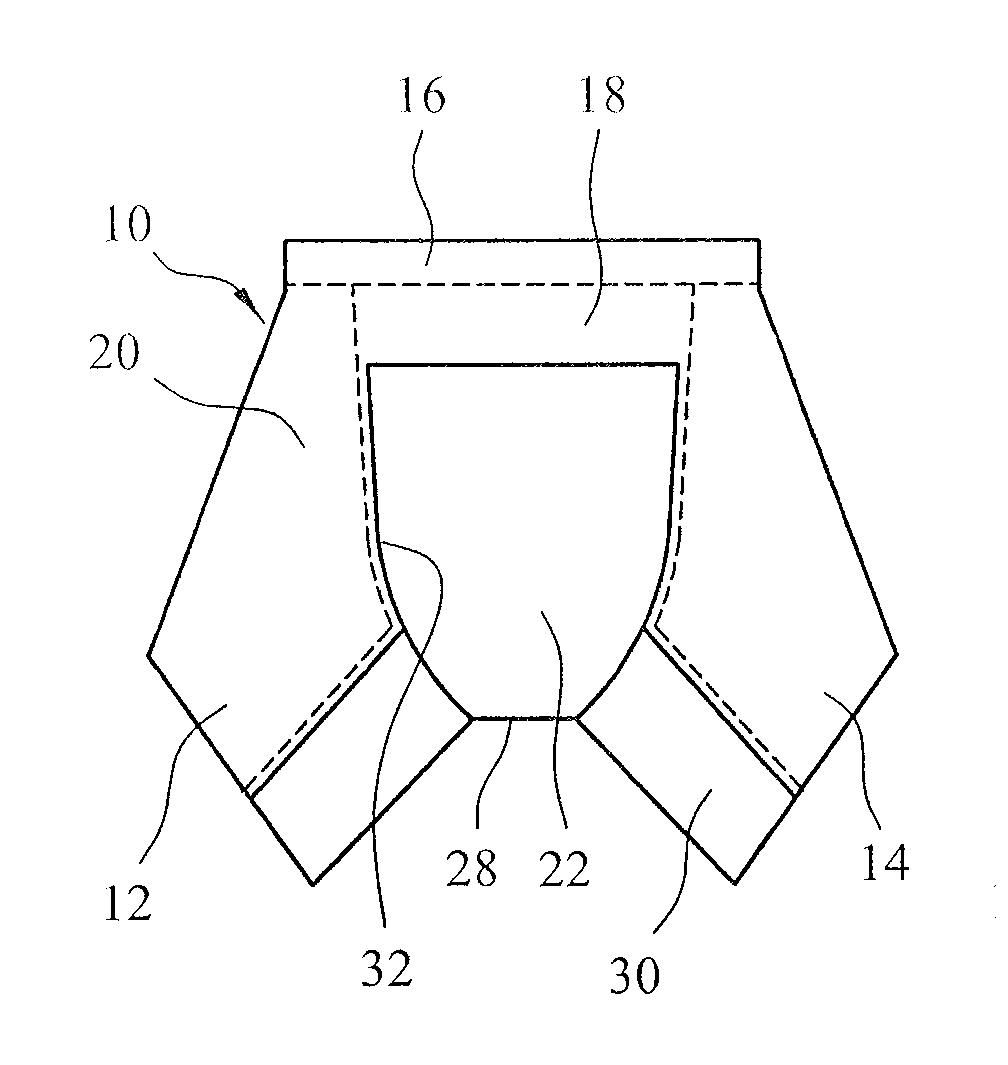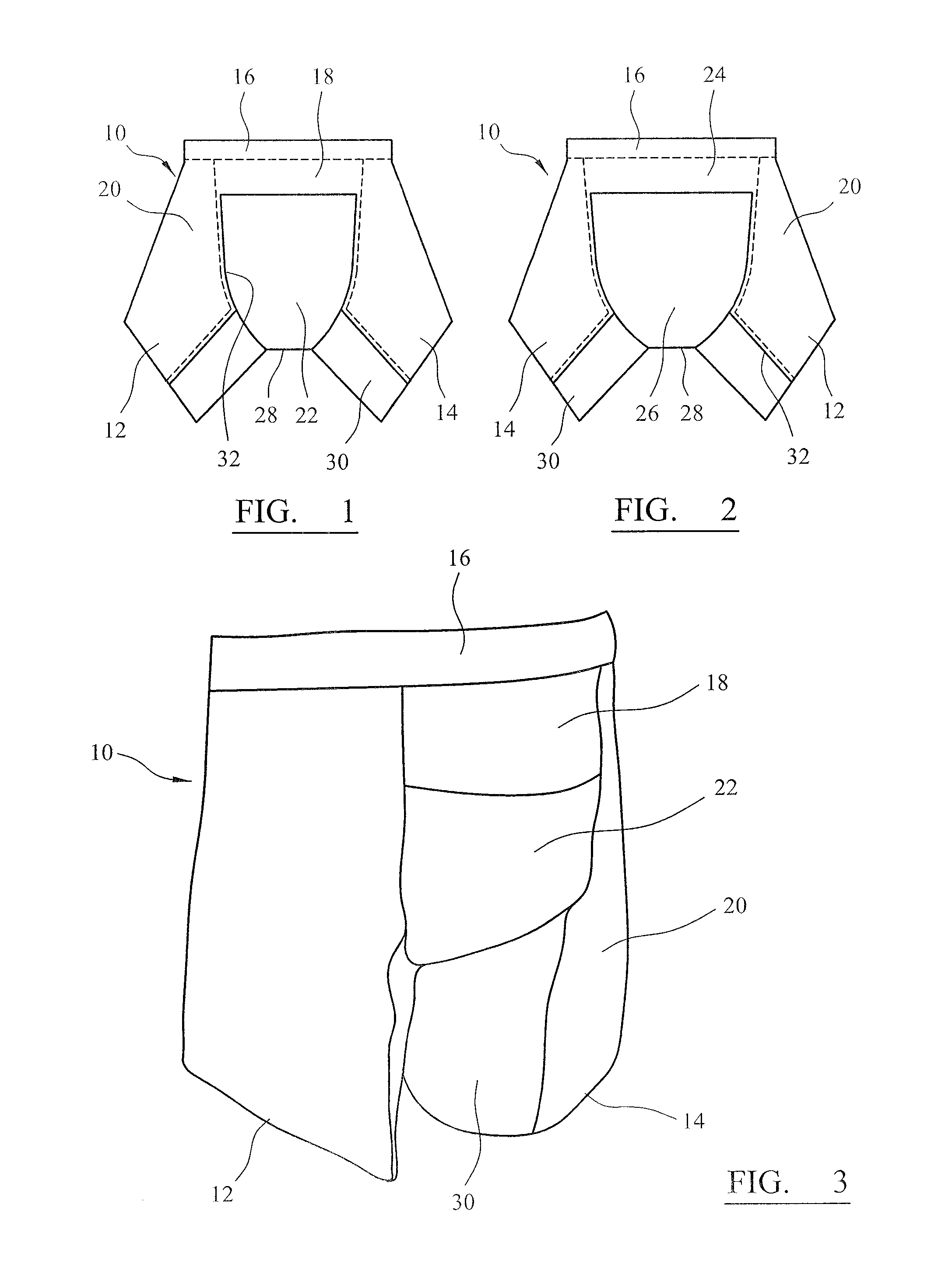Multi-paneled protective undergarment
a protective undergarment and multi-panel technology, applied in protective equipment, clothing, shirts, etc., can solve the problems of severe external and internal body trauma, real threat to both civilians and, more particularly, military or police personnel, and achieve increased protection, good leg mobility, and low thermal burden
- Summary
- Abstract
- Description
- Claims
- Application Information
AI Technical Summary
Benefits of technology
Problems solved by technology
Method used
Image
Examples
Embodiment Construction
[0023]Turning to FIGS. 1 to 3, there are shown various views of protective trunks 10 according to a preferred embodiment of the present invention. The terms “trunks” is not limiting and should be understood to include, and be interchangeable with, equivalent terms such as “boxers”, “briefs”, “shorts”, “diapers” and “underpants”.
[0024]The protective trunks 10, in a preferred embodiment, resemble cycling shorts in that legs 12, 14 extend, when worn, down the thighs of a user to close slightly above the knee and thus around the quadriceps and hamstrings of a wearer. A waistband 16 extends around the top of the trunks 10, which waistband is either elasticated and / or otherwise permits for fitting adjustment. At the front, beneath the waistband 16, a relatively narrow (but optional) waist panel 16 connects the waistband 16 to: i) outer leg side coverings 20; and ii) a front adnominal protective panel 22. At the back, beneath the waistband 16, a relatively narrow (but optional) lateral bac...
PUM
 Login to View More
Login to View More Abstract
Description
Claims
Application Information
 Login to View More
Login to View More - R&D
- Intellectual Property
- Life Sciences
- Materials
- Tech Scout
- Unparalleled Data Quality
- Higher Quality Content
- 60% Fewer Hallucinations
Browse by: Latest US Patents, China's latest patents, Technical Efficacy Thesaurus, Application Domain, Technology Topic, Popular Technical Reports.
© 2025 PatSnap. All rights reserved.Legal|Privacy policy|Modern Slavery Act Transparency Statement|Sitemap|About US| Contact US: help@patsnap.com


